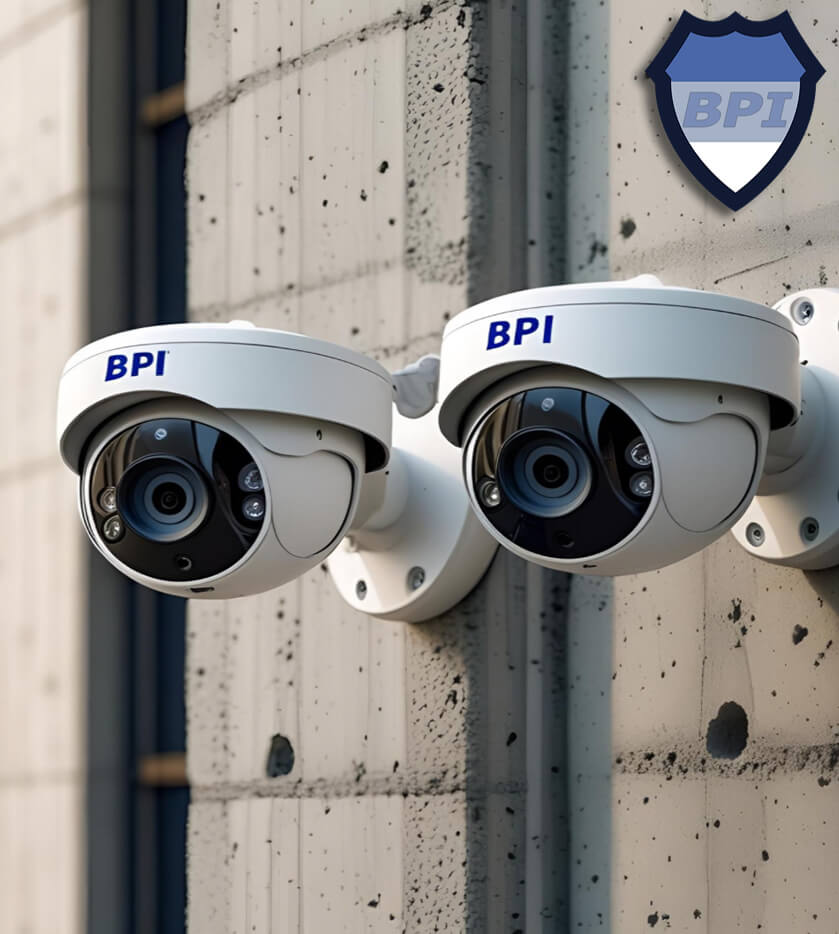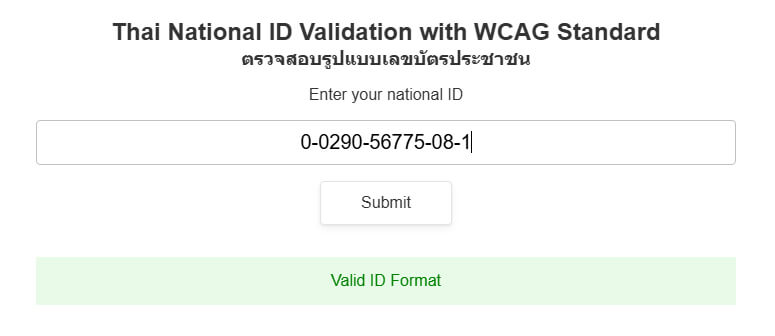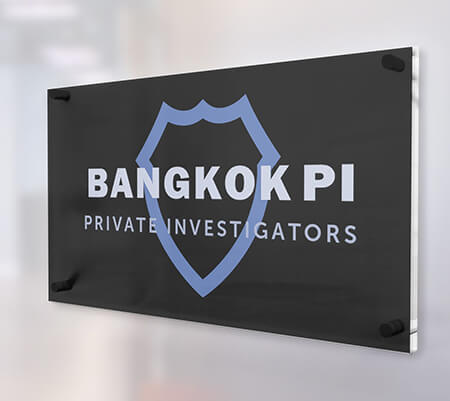Interviewing a Thai Bar Girl
December 20, 2025 - Reading time: 12 minutes
Updated: December 21, 2025
Online you’ll find lots and lots of preconceived ideas and information about bar girls working in Thailand. Much of it is repeated without context or first-hand insight. We wanted to shed a bit of light on one individual’s personal circumstances, to give people a clearer picture of what life can actually look like in reality.
This is a straightforward interview with a woman currently working in a bar in Bangkok. Her name has been shortened to an initial for privacy. The interview is presented largely in her own words, with only minor editing for clarity.

Q: Hi, what is your name and how old are you?
A: My name is P, I am 29 years old.
Q: So how long have you been working in a bar and where do you work?
A: I’ve been working in a bar since I was 25 years old. I first started working at a bar in Pattaya. However, last year I decided to move to Bangkok because I needed to be close to my sick uncle who needs help and someone to keep an eye on him. My parents were pleased when I moved to Bangkok so I could help my uncle in my spare time, which I don’t really get much of. I currently work in a bar in Bangkok.
Q: Why did you decide to start working in a bar?
A: I needed to make money. I needed to make enough money to support my parents. I have two children from a previous relationship and I’m responsible for supporting my parents as well. That’s why I decided to start working in a bar.
Q: What did you do before bar work?
A: Before working in a bar I worked in a factory [on the outskirts of Bangkok]. My husband worked in the same factory and together we earned enough to support ourselves. When the children were old enough, I sent them to live with my parents in the village. When they were no longer small, my parents looked after them while we worked away.
Q: You mentioned you have two children. Does the father help support them now? Does he give child support?
A: No, he does not give me any child support. If he offered, I would refuse. He has not seen his children in years and he has moved on. He now has children with another woman.
Q: Why not work in a factory or a supermarket now?
A: If I did minimum wage work like a factory, supermarket, or restaurant, it would not pay me enough. I have two children. One is in school and I have to pay for school clothes and everything. My other child will be starting school soon. My mother is diabetic and needs regular medical care, which costs money. I have lots of things to pay for. I simply wouldn’t make enough money.
Q: How did you learn to speak English?
A: Ha ha. I learned English when I started working in a bar. Before that I couldn’t speak any English. My English is not good now, but I think it’s enough to understand.
Q: How much money can you earn working in a bar?
A: It depends on customers. Right now the bar is very quiet. Last month I had a customer who took me around Thailand for three weeks on his holiday, and he paid me well for my time. But this month I don’t have any good customers. It goes up and down.
Q: Are you treated fairly by your employer?
A: Yes, but they are very strict. Once a month all the women have to stand on a scale in front of the mamasan. If we gain weight, money is deducted from our [base salary], which is only a few thousand baht. I also have to have at least 20 drinks bought for me per night or there are deductions. I must have at least three bar fines per week or more money is deducted. Sometimes it’s very difficult to make money.
Q: Do you have a boyfriend?
A: Well, I have three men who are seriously interested in me. A British man spent three weeks with me last month. A Swedish man is coming next month, but I don’t think he’s sincere. There’s also an older American man I talk to regularly.
Q: Is the British guy a serious relationship?
A: He thinks it’s serious and has told his family about me. I like him a lot and I’m kind of in love with him, but I don’t know what will happen in the future.
Q: Does he think you won’t leave the bar with other customers?
A: Yes, I told him I wouldn’t leave.
Q: Is that true?
A: No. I still need to leave the bar with customers to earn money. He will send me about 10,000 baht per month. That’s not enough. And he knows I am still working in the bar.
Q: Why not ask him for more?
A: He will think I’m only interested in money. I know how he would react, so I don’t ask. He allows me to keep working here.
Q: Is Thailand cheap to live in?
A: No, it’s not cheap. Money comes in and goes out straight away. Something always comes up with my parents or children. We also have rice fields in the village. Last week I paid 27,000 baht just for fertilizer.
Q: Is it profitable for your parents to farm rice?
A: No, not really. My family consume the rice themselves and sometimes there is a small amount which can be sold on. Some years the harvest is bad and there is not enough rice for our family to eat, then we have to buy it.
Q: Do you have debt?
A: Yes. I owe some people in the village small amounts, and I owe money to the bank.
Q: How much did you borrow from the bank?
A: Around 340,000 baht.
Q: Why did you borrow that? And how much have you repaid?
A: I bought a plot of land in the village to build a house on in the future. I haven’t made any payments yet.
Q: Do you enjoy bar work?
A: No. I have to drink a lot. I haven’t seen my family for about 18 months. I’m tired of the lifestyle.
Q: What is your dream?
A: To leave the bar, improve my parents’ house, and build a small house for me to live in the village. I just want a quiet life in the village.
Q: I saw that you have a butterfly tattoo, what does that mean?
A: It doesn’t mean anything. I just liked it. Now I regret it because customers make comments.
Q: If a man is in a relationship with a Thai lady that works in a bar, what would be your advice for him?
A: I don’t know. It’s hard for me to say because it depends on the lady. If the lady is bad natured, the relationship will not end in a good way. But for me personally, I just want a good man to take care of me. If a man is serious about a lady, then he should not leave her to work in a bar. Because if she continues working in a bar, she will eventually meet a man that will support her. That is what lots of women are looking for.
This interview reflects the personal experience of one individual. Circumstances vary widely and this is not intended to generalise or represent everyone working in similar environments.
If your girlfriend is working in a bar in Thailand
If you are in a relationship with a woman who works in a bar in Thailand and you have concerns about honesty or loyalty, we can discreetly check this as part of our bar girl investigation service.
This can include confirming whether she is seeing other men, whether she is actively entertaining customers outside of work, and whether the situation she has described to you reflects reality.
We can also establish whether she is currently married, previously married, or whether she appears on dating websites or in adult material by carrying out a background check.
Can Investigators Access Hotel CCTV & Records in Thailand?
July 15, 2025 - Reading time: 8 minutes
Updated: July 23, 2025

Why clients request this service
- Suspected infidelity during a partner’s trip
- Need to confirm who shared a hotel room or apartment
- Checking dates, companions or extra guests on bookings
Common misconceptions
Many people assume a private investigator can simply “pull” CCTV or booking data on demand. In reality:
- Hotels, condos and serviced apartments are not obliged to share footage unless there’s a police order or warrant.
- Most CCTV systems overwrite their data after 7 to 60 days.
- Getting cooperation depends heavily on timing, staff, and the story being used.
What Bangkok Investigators can actually do
- Visit the location in person (Bangkok, Pattaya, Phuket, Chiang Mai and beyond)
- Use carefully planned cover stories to interview receptionists, security, cleaners and managers
- Request CCTV footage or booking records (in writing or face to face)
- Document all efforts in a detailed report with names, dates and comments
Success stories (results vary)
We’ve had cases where:
- Lobby footage clearly showed a couple checking in together
- A manager quietly printed out a guest list showing an additional name on the booking
- Night staff casually described a subject’s late‑night visitor
These results come from experience, preparation and a bit of luck. They are possible, but never guaranteed.
Costs
For in‑person site visits in Bangkok, Pattaya or Phuket, fees start from 11,500 THB including tax. Prices rise for after‑hours work, complex cover stories or multiple locations. You’ll always get a clear quote first.
Extended hotel stays for deeper investigation
One quick visit isn’t always enough. In bigger cases we can book an agent into the hotel overnight. That lets us:
- Talk with staff on different shifts
- Approach cleaners, reception and security naturally
- Build rapport and pick up useful detail about guest activity
This can beat a short site visit, but it still carries no guarantee. If you want the strongest proof, real‑time surveillance is best.
Live surveillance = better odds
Gathering evidence after the fact is harder. Whenever possible, instruct us before the suspected meeting. Our teams can follow the subject discreetly and record video or stills, making later hotel enquiries far more productive.
Frequently Asked Questions
No. We can make the request, but the decision is up to the property. Your fee pays for our effort and time - not a promised outcome.
Recordings are normally recycled after 7 to 30 days. The sooner we act, the better the chance the footage still exists.
Remote requests rarely work. Face‑to‑face contact gives us a far better chance of persuading staff.
Full name of the subject, dates of stay, hotel name, room number if known, booking emails, receipts or any photos.
We’ll still document everything. You’ll get a report showing who we spoke to, what was said, and our advice on next steps.
Yes. Catching someone in real time gives stronger evidence and often makes hotel staff more willing to cooperate later.
If you accept the uncertainty involved and still want to proceed, contact Bangkok Investigators for a private consultation.
How to Check if Someone Owns Land or Property in Thailand
June 25, 2025 - Reading time: 5 minutes
Updated: June 25, 2025
How to Check Land or Property Ownership in Thailand?
If you're looking to verify whether someone owns land (or property) in Thailand, you will need to physically visit or send someone to visit the local Department of Lands Office for the specific area concerned. Property deeds and ownership records in Thailand are kept exclusively in paper format at the local, sub-provincial level, and digital databases do not exist for ownership verification.
How Do You Access Property Deeds from a Local Land Office?
The process for accessing property deeds can vary significantly depending on your specific local land office. Each land office may have its own set of requirements based on the case or reason for your inquiry, such as verification for legal purposes or personal checks. To get accurate details on what is required, including necessary documentation like the Chanote number, you should directly contact the land office involved.
Can a Background Check Include All Property and Land Owned by a Person in Thailand?
A background check can reveal addresses linked to an individual, but those addresses alone do not confirm ownership. As explained above, property and land ownership records are stored in paper format at local land offices. To check for property ownership across the entire country, you would need to visit every provincial land office and manually go through their records. Since there are thousands of land offices, this is clearly not a practical option.
Are There Any Online Resources to Check Land Boundaries?
Thailand offers a useful online resource: LandsMaps.DOL.go.th. Here, you can find information like GPS coordinates, land size, and boundary markers by entering the Chanote number. However, this site does not provide ownership details, as those are only available offline at the relevant land office.
Is There a National Land Registry in Thailand?
Thailand does not have a centralised national land registry in the way some other countries do. Ownership records, including current and historical data from the Chanote (land title deed), are stored locally at individual land offices and are only accessible in person. While online tools like LandsMaps.DOL.go.th allow you to check boundary lines, coordinates, and land sizes, they do not display current ownership or transfer history. That kind of information remains entirely offline and decentralised.
Can Foreigners Own Land in Thailand Through a Thai Company?
Foreign nationals are largely restricted from owning land in Thailand, with only rare exceptions. As a workaround, some individuals have historically set up Thai companies as holding entities to retain control over land or property. While this practice has come under greater scrutiny in recent years, it remains a notable method in certain situations. The key advantage from an investigative standpoint is that Thai company registration records are digitised. This means that if the person in question is, or has been, listed as a director of a Thai company, those records can be identified through a digital directorship search. This approach can reveal ties to property holdings when direct land ownership cannot be easily established.
How Can I Find Addresses in Thailand Using Google Maps?
Finding specific addresses in Thailand using Google Maps can be challenging. Street numbers often do not match accurately, and villages or less-populated streets might be difficult to locate on the map. GPS coordinates or a registered Google business listing greatly simplify locating a property. In practice, locating an address often involves physically checking street signs, house number sequences, or interviewing locals directly.
What Can Background Checks in Thailand Include?
A thorough background check can cover a range of details, including marriage and divorce history, family connections, employment history, criminal history, and online presence checks (such as dating sites and social media). However, it cannot include all land/property owned by the individual within Thailand, as this information is not stored in a central database.
For further details, visit our background checks service page.
How to Check if a Thai ID Card is Fake
June 22, 2025 - Reading time: 7 minutes
Updated: June 27, 2025
If you're dealing with Thai identity documents such as Thai ID cards, passports, or driving licences, verifying their authenticity is critical. Fake Thai ID cards can present major risks, particularly for employers, business owners, or individuals entering personal relationships. In this guide, you'll learn practical ways to check if a Thai ID card is genuine, understand the structure of the 13-digit Thai identification number, and discover when professional verification is needed.
Why Check if a Thai ID Card is Genuine?
Verifying a Thai identity card's authenticity is essential for several reasons:
- Pre-employment screening in Thailand: Protect your business from employing individuals with fake IDs and avoid serious legal consequences.
- Romantic relationships: Confirm your partner’s true identity to reduce the risk of romance scams and deception.
- Business partnerships: Prevent fraud by verifying the true identity and reputation of potential business partners.
- Legal compliance: Avoid complications related to immigration or fraudulent identification in employment practices.
- Fraud prevention: Protect yourself from identity theft and financial scams by ensuring documents are legitimate.
💡 Did You Know?
Can you check if a Thai person is married by looking at their ID card?
The answer is no. For men, Thai ID cards always show the title "Mr." For women, the title can be "Mrs." if they specifically apply to change it after marriage. However, many married Thai women still carry the title "Miss" on their ID cards because either they don't realise they can update it or choose not to. Thus, the ID alone doesn't reliably show marital status.
If you're involved with someone who turns out to be married, their partner could sue you under Thai law for interfering in their marriage. To avoid this scenario, a thorough background check is highly recommended.
Understanding the Thai 13-Digit ID Number
Every genuine Thai ID card features a unique 13-digit personal identification number. These digits represent specific information:
- Digit 1: Indicates the registration category (Thai national or resident).
- Digits 2 to 5: Represent birth year and province or region of registration. Digit two indicates the century ("1" for the 1900s, "2" for the 2000s), followed by three digits for province identification.
- Digits 6 to 10: Encode date of birth details and regional registration information.
- Digit 11: A mathematically calculated checksum digit ensuring the ID number is valid.
- Digits 12 and 13: Random digits ensuring the ID number's uniqueness.
How to Validate a Thai ID Number Online
You can easily validate a Thai ID number online using a checksum validator. The checksum (digit 11) verifies that the number sequence follows a legitimate mathematical pattern.

Image: Despite being invalid, the number passes validation due to its adherence to the correct sequence described earlier.
Try using this convenient online tool to quickly test any Thai ID number:
👉 Thai National ID Validator by Chukkrit Visitsaktavorn
If the ID fails this checksum test, it's definitely fake. However, even if it passes, this does not guarantee authenticity because scammers might use legitimate numbers belonging to others (these are easy to find online), or digitally alter an ID which features a genuine ID number.
Types of Fake Thai ID Cards to Be Aware Of
Common forms of fake Thai ID cards include:
- Digitally altered documents: Genuine ID card images modified with fake details or photos.
- Professionally printed fake IDs: Completely fabricated ID cards used by illegal migrants or fraudulent individuals.
- Stolen genuine numbers: Using authentic ID numbers belonging to other individuals, making initial checks appear valid.
Subtle digital manipulations or professional counterfeit documents can often evade basic visual inspections or online validators.
Limitations of DIY Thai ID Card Verification
Although online checksum validation helps identify obviously fake IDs, it’s important to recognise its limitations:
- An ID card using a stolen genuine number may pass the checksum test.
- Digitally manipulated ID images may look real unless checked professionally.
- Other identification forms like Thai passports or driving licences need professional cross-checking beyond simple ID validators.
When Should You Hire a Professional to Verify Thai IDs?
For situations where authenticity is critical, such as employment, serious relationships, or important business deals, it's best to hire professional verification services. At Bangkok Investigators, we provide:
- Verification of ID details against official Thai government databases.
- Comprehensive background checks, including marital history, criminal records, and employment verification.
- Detailed analysis to detect counterfeit Thai passports and verify Thai driving licence authenticity.
🔍 Did You Know?
Many fake Thai ID cards we've uncovered passed basic checksum validators online. Digital manipulation and sophisticated forgery methods mean that initial checks are often insufficient for total confidence.
To protect yourself fully from fraudulent identities, consider hiring a private investigator specialising in Thai ID verification and thorough background checks.
For guaranteed peace of mind: Explore our professional verification services now.
Authenticating Thai identification documents involves more than basic online checks. Professional verification is essential if you need to be certain of someone's identity and background. By taking these extra steps, you minimise risks in employment, business, and personal relationships and ensure decisions are based on accurate, verified information.
Search
Bangkok Investigators

Discover more about Bangkok Private Investigators on our homepage or by visiting our About Us page.